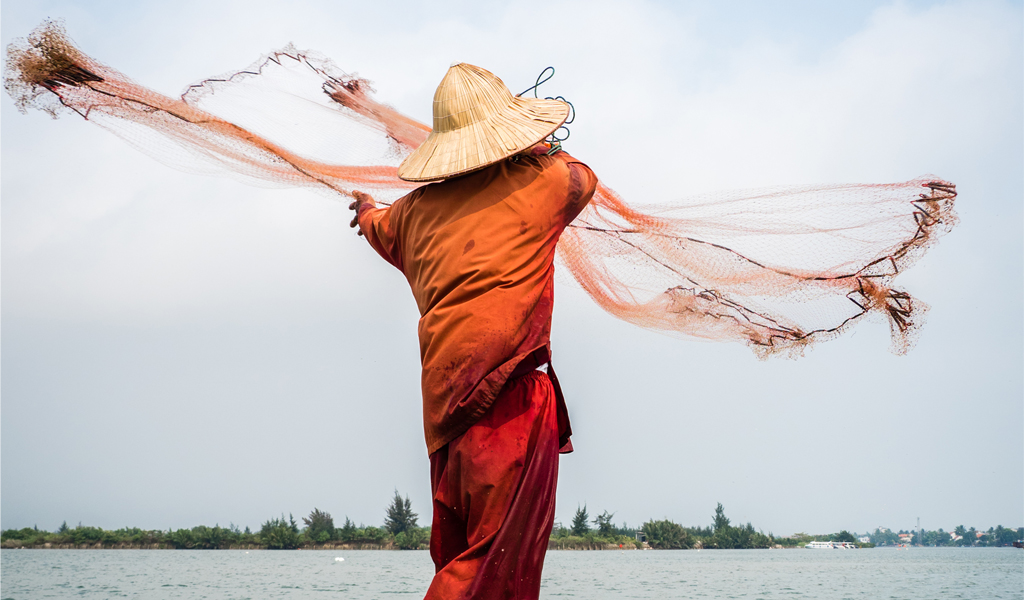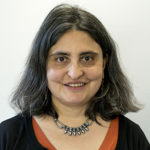The Institute of Development Studies will hold its flagship event Recasting Development on 28 January to explore key trends in development for the coming year.

Now in its third year, the event offers an opportunity for IDS experts and partners to share their views on where development is heading – and crucially, how development can be recast to have greater impact on our shared priorities of justice, equity and resilience.
This year we take a geographic focus, exploring five countries whose experiences are critical to how development is evolving: Brazil, China, India, Indonesia and South Africa.
Read about the five countries that the event will focus on:
How are traditional peoples faring in Brazil’s push for greater inclusivity?


Alex Shankland, Senior Fellow, Institute of Development Studies
Felisa Anaya, Professor, State University of Montes Claros (UNIMONTES)
With Brazil’s hosting of major global summits in 2024/5, the country has been held up as a leader of southern-led development. President Lula’s administration has committed to making traditional communities more central to development, and particularly to engaging them in the COP30 climate talks – crucial given their role as environmental stewards. How successful has the government been on this, and what needs to happen to enable greater participation from traditional peoples?
How is China’s relationship with the Global South evolving?
 Jing Gu, Senior Fellow, Institute of Development Studies
Jing Gu, Senior Fellow, Institute of Development Studies
The relationship between China and the Global South is becoming ever more important. China views the Global South as central to a new world order, sees a shared historic sense of colonialism and Western hegemony, as well as a commitment to reform of global institutions. And yet, there is a vast diversity in the needs and development priorities between global South nations and China. How can China and the global South best forge effective development cooperation during 2025 and beyond?
How is India responding to top-down development models?
 Lyla Mehta, Professorial Fellow, Institute of Development Studies
Lyla Mehta, Professorial Fellow, Institute of Development Studies
Growing centralisation of power from an increasingly authoritarian national government has led to growing inequalities and social polarisation. Natural resources are being commoditised for private profit, at the expense of local communities, with billionaire tax breaks prioritised against Indigenous and local people’s rights. Majoritarian discourses are infringing on the rights of minorities, activists and critics. How can Indian development be refocused on the importance of working for and realising basic needs and rights of all citizens, regardless of caste, religion, ethnicity or gender?
What lies ahead for Indonesia’s sustainable agri-food development?
 Aditya Alta, Head of Research at the Center for Indonesian Policy Studies
Aditya Alta, Head of Research at the Center for Indonesian Policy Studies
President Prabowo has made food and nutritional security a strong focus of his policy. With stunting rate at more than 20 percent and a declining agricultural productivity, much is needed to ensure access to healthy diets. The administration’s approach, however, highlights a re-centralization of development efforts where narrow targets of food production are to be pursued by big-budgeted state projects. Meanwhile, ecological goals and longstanding agrarian questions are blatantly ignored. What hopes remain for Indonesia to ensure the sustainability of its food and nutrition agenda?
Can South Africa tackle entrenched inequalities and reduce hunger?

 Stephen Devereux, Professorial Fellow, Institute of Development Studies
Stephen Devereux, Professorial Fellow, Institute of Development Studies
Busiso Moyo, Postdoctoral Researcher, University of the Western Cape
South Africa remains one of the most unequal countries in the world, one factor behind significant falls in support for the ruling ANC party in last year’s elections. Persistently high levels of hunger in this upper middle-income country symbolise its historically racialised income and wealth inequalities. With South Africa hosting the G20 this year – taking over from Brazil, which launched the Global Alliance Against Hunger and Poverty during its term – what can be done to address hunger and other inequalities?
